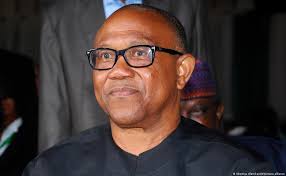
The recent announcement by the Niger State government to ban all religious preaching unless licensed has stirred significant debate across Nigeria. On the surface, it appears as a bold, perhaps even controversial, move to regulate religious activities in a state that is religiously diverse and occasionally tense. But is this a necessary step? Does it balance security concerns with constitutional freedoms, or does it risk infringing on fundamental rights?
This policy directive requires that anyone intending to preach religion in Niger State must first obtain official permission from the government. It’s a strict measure that has supporters and critics, each with valid points worth considering.
Why the Government Might See This as Necessary
Nigeria has long struggled with religious violence and extremism. Preachers who spread hate speech, incite violence, or promote radical ideologies have contributed to social instability in various regions. In states like Niger, where different religious communities coexist, the government might feel compelled to impose controls to maintain peace and order.
The licensing system could serve as a tool to filter out extremist voices and prevent the dissemination of inflammatory or dangerous teachings. By requiring preachers to register and be accountable, the government can, in theory, monitor what is preached and hold individuals responsible if they cross legal or ethical boundaries.
Moreover, unregulated religious gatherings have in some cases led to public disturbances or become venues for illegal activities. Licensing could help ensure that venues are appropriate, safe, and do not violate other laws regarding public assembly.
Finally, this move may be seen as a way to encourage accountability and professionalism within religious circles. Licensed preachers would presumably be vetted, providing congregants with a degree of assurance about the authenticity and intentions of their spiritual leaders.
Concerns About Freedom and Fairness
Despite these reasons, the policy raises serious concerns about freedom of religion and expression, both of which are constitutionally guaranteed in Nigeria. Religion is deeply personal and diverse; asking for a government licence to preach risks infringing on individuals’ rights to freely practice and propagate their faith.
Another critical concern is the potential for abuse of power. The licensing authority must be impartial and transparent, yet history shows that such powers can be manipulated. Religious groups favored by the government might be granted licenses easily, while minority or dissenting voices might be sidelined. This could deepen religious tensions rather than ease them.
The practicality of enforcing such a policy is also questionable. Many religious activities occur in small, informal settings — homes, community centers, or even open spaces. Monitoring and regulating all preaching activity would be a massive logistical challenge and may lead to arbitrary arrests or harassment.
Striking the Right Balance
The tension between security and freedom is not unique to Niger State. Governments worldwide grapple with regulating religious activities without trampling rights. The key lies in consultation and transparency.
If the government truly intends to promote peace and curb extremism, it should work with religious leaders, community elders, and civil society groups to develop clear, fair guidelines. This way, the policy would be seen not as censorship but as a collaborative effort to uphold peace and social cohesion.
Public education about the reasons for licensing and the limits of its scope could also help build trust. Open channels for appeal and complaints can reduce the risk of power misuse.
The Niger State government’s move to license religious preaching reflects a legitimate concern for public safety and social harmony. However, without careful implementation, it risks undermining constitutional freedoms and fueling distrust.
Licensing, if done right, could contribute to peace and accountability, but if mishandled, it might suppress religious expression and deepen divisions. The government must ensure that the policy respects Nigeria’s rich religious diversity and does not become a tool for discrimination.
In a nation where religion shapes identity and community, any regulation must be balanced, inclusive, and transparent — otherwise, it may cause more harm than good.




